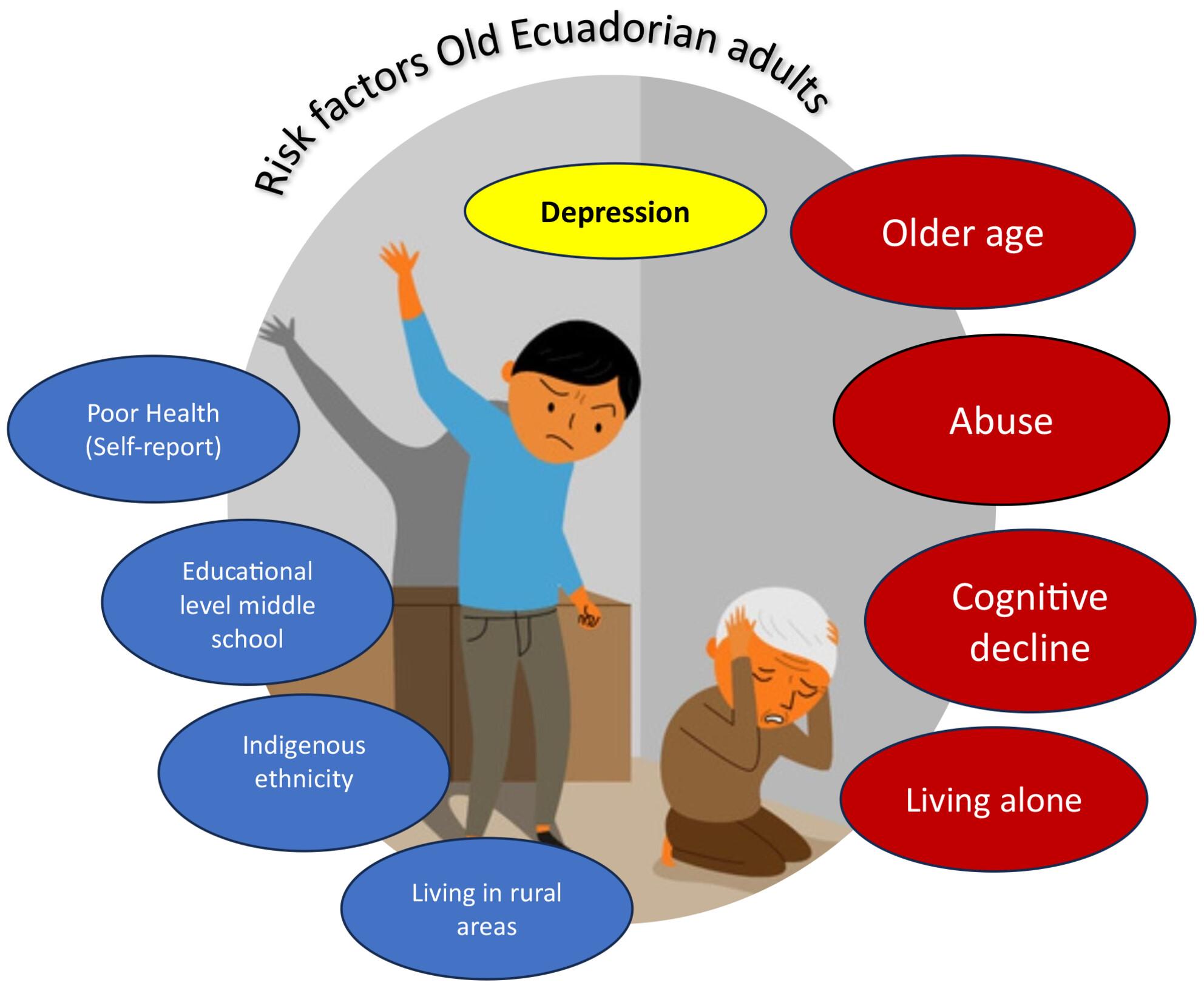Abuse and other factors related to depression in older Ecuadorian adults
Abstract
Objective
To identify abuse and other risk factors associated with depression in older Ecuadorian adults using data from the 2012 Ecuador's Survey of Health, Welfare, and Aging (SABE).
Methods
This cross-sectional study analyzed data from the 2012 SABE survey, which included 5235 adults aged 60 and above. The study evaluated residence, education level, ethnic self-identification, self-perceived health and memory, loneliness, cognitive status, and abuse. Depression was assessed using the Yesavage Depression Scale, short version (YDS-SV). Categorical variables were analyzed with the Chi-square test, differences between groups were calculated with the Kruskal–Wallis test, and multiple linear regression analysis was performed. A p-value of ≤0.05 was considered statistically significant.
Results
The mean age was 71.39 ± 8.59 years and 55.10% of the sample were women. Abuse was absent in 72.1% (3.773) of the population. The Chi-square test indicated significant associations between depression and poor self-reported health (P = 0.000) and indigenous ethnicity (P = 0.000). Multiple linear regression analysis revealed that age (P < 0.001), abuse (p < 0.001), cognitive status (P = 0.002), and living alone (P = 0.034) significantly contributed to mood as assessed by the YDS-SV. No statistically significant association was found for perceived health status or place of residence (urban or rural).
Conclusions
Risk factors associated with depression in older Ecuadorian adults include advanced age, living alone, cognitive decline, poor self-perception of health and cognition, and abuse.


 求助内容:
求助内容: 应助结果提醒方式:
应助结果提醒方式:


